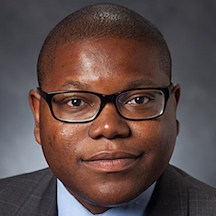 A new study, led by Darris R. Means, an assistant professor in the College of Education at the University of Georgia, finds that race and rural location can have a significant impact on whether or not young high school students enroll in college.
A new study, led by Darris R. Means, an assistant professor in the College of Education at the University of Georgia, finds that race and rural location can have a significant impact on whether or not young high school students enroll in college.
Interviews with African Americans in rural high schools found that students overwhelmingly felt that they had encouragement and support to go to college, yet didn’t have access to academically rigorous classes or enough one-on-one time with a counselor to get help with the college admission process.
Dr. Means states that “colleges and universities have an opportunity to think about ways to recruit students from rural communities and enhance programs and services to retain rural students. Educational leaders and state policymakers must consider how resource allocations affect rural students of color and their educational experiences. For us to understand how to support all youth, we have to look at this intersection of race and rurality.”
Dr. Means is a graduate of Elon University in North Carolina, where he majored in sociology and political science. He holds a master’s degree in counseling and student affairs from Clemson University in South Carolina and a Ph.D. in educational research and policy analysis from North Carolina State University in Raleigh.
The article, “Bounded Aspirations: Rural, African American High School Students and College Access,” appears in the summer 2016 edition of the The Review of Higher Education. It may be accessed here.

